ETHICS OF WAR AND PEACE IN IRAN AND SHII ISLAM
Ethics of War and Peace in Iran and Shii Islam
MOHAMMAD JAFAR AMIR MAHALLATI

University of Toronto Press 2016
Toronto Buffalo London
www.utppublishing.com
Printed in Canada
ISBN 978-1-4426-2951-6
 Printed on acid-free, 100% post-consumer recycled paper with vegetable-based inks.
Printed on acid-free, 100% post-consumer recycled paper with vegetable-based inks.
Library and Archives Canada Cataloguing in Publication
Mahallati, Mohammad Jafar, 1952, author
Ethics of war and peace in Iran and Shii Islam/Mohammad Jafar Amir Mahallati.
Includes bibliographical references and index.
ISBN 978-1-4426-2951-6 (cloth)
1. War Moral and ethical aspects Iran. 2. Peace Moral and ethical aspects Iran. 3. War Religious aspects Islam. 4. Peace Religious aspects Islam. 5. Shah Iran. 6. Shiites Iran. 7. Jihad. I. Title.
BP192.7.I68M34 2016 297.8'20955 C2016-902989-1
This book has been published with the help of a grant from the Federation for the Humanities and Social Sciences, through the Awards to Scholarly Publications Program, using funds provided by the Social Sciences and Humanities Research Council of Canada.
University of Toronto Press acknowledges the financial assistance to its publishing program of the Canada Council for the Arts and the Ontario Arts Council, an agency of the Government of Ontario.

To Amirata
With the hope that he builds on his cultural, moral, and peacemaking heritage
Preface and Acknowledgments
Rules of engagement, ethics of war, and chivalric codes are all attempts to rein in and regulate what is perhaps the most anarchic and illogical of all human activities: war. From the Crusades and jihads to the miles christianus (Christian soldier) and the pious ghz (Muslim warrior), the great religions of the world have certainly played their parts in propagating and mitigating war. This book is a critical overview of the ethics and theology both actual and ideal of war and peace and the way these questions are treated in modern Iran and Twelver-Shii Islam.
A considerable literature on the ethics of war has been written in Arabic and more recently in English often relying on sources related to traditional jurisprudence and law, and often with a readership limited to experts in those fields. There is, however, no well-known analytical work on this topic that is informed by and influencing the wider public opinion on the ethics of war and peace in Persian-speaking societies. This lacuna is particularly critical as Irans foreign policy approaches a turning point in its relations with the West and with the United States, in particular.
This book explores the wide spectrum of theoretical approaches and practical attitudes concerning the justifications and causes of war (jus ad bellum), the conduct of war (jus in bello), and after-war conduct (post bellum) in Iranian-Shii culture. Two recent historical events, above all others, have tested the traditional Muslim theories and theologies of war and peace: the Iran-Iraq War and the violent events in Iraq and Syria, specifically in areas under Daesh (or what is alternatively, and wrongly, called the Islamic State in Iraq and Syria). In effect, a wide-range of Iranian and Shii perspectives, traditions, and scholarships concerning war and peace is presently undergoing serious critical review and conceptual reform in Iran.
Most modern literature and research in these areas focus either on particular examples of jurisprudence or on nonreligious political perspectives (e.g., national interest) within the realm of political philosophy. This monolithic and timeless approach neglects the evidence of regional traditions and innovative thinkers by relying solely on a handful of thoughts made popular, not by merit, but by repetition and claiming exclusive authority over certain realms of thought and policymaking. This book aims to avoid just that.
Presently, an increasing amount of theological and philosophical treatises and writings in Iran address questions related to the ethics of war and peace from various angles, including: Qurnic exegesis, hadith collections, juris-prudential discourses, historical narratives, theological treatises, philosophical perspectives, Persian epic literature, and chivalric moral codes. These source works, however, are mostly informed by two interrelated and formative elements of the Iranian identity: the glory of the ancient Iranian Empire and the Shii world view. This volume navigates such works in search of new perspectives on the ethics of war and peace established by modern Iran and Twelver-Shii Islam, and will focus on recovering and exploring the specific Persian literary works, both classical and modern, that have been most influential in the making of the modern Iranian and Shii mindset on the subject matter. By examining the sources and traditions, as well as the historical events, that have shaped and moulded the Iranian identity, this study seeks to understand modern Iranian responses public, academic, and governmental to war and peace.
This book is intended for the public, academics, and policymakers whose works are informed by the study of the ethics of war and peace, political philosophy, comparative religion, history, and most fittingly, conflict resolution and peacemaking in international relations.
All transliterations in this book for Arabic terms generally follow the standards of the International Journal of Middle East Studies, with the exception of proper Persian names or words, which adhere to the standards of Encyclopaedia Iranica. I have chosen to adopt Arabic transliteration for proper names and terms when I refer to traditional sources but will use Persian transliteration when I refer to contemporary figures; this explains why I have used both Muhammad and Mohammad for proper names. Arabic and Persian terms appear in italics, except for terms that are very common in English usage. As for diacritical markings, I have marked only long vowels and ayn () and hamzah (), but use no dots. Transliterated Arabic words in the text do not show the silent ending (h). The abbreviation b. is used in names for Ibn. All dates, unless specified, are in the Common Era (CE), except when referring to the Arabic hijri calendar (AH). For encylopedic entries in the appendixes, I have used both the Common Era and corresponding Arabic hijri calendars. Whenever citations from primary and secondary sources are accessible both in Persian and another language (e.g., English or Arabic), I have intentionally chosen texts in Persian to point out their availability for Iranian readers.
I have been thinking and working on this book for many years now. My studies in the field, as well as my direct encounter with the effects of war, have proven to me that it is the most ugly and immoral invention in human history. I spent a decade of my life working with the United Nations to contain the devastating Iran-Iraq War, one of the longest in modern history. I had the honour of contributing to ending this war when I served as Iranian ambassador to the United Nations between 19879.
The credit for all the above, if any, goes to the spirits of my mother, Saleheh Mojahed, and my late father, Ayatollah Majdeddin Mahallati, the two paragons of peacemaking in Shiraz (Iran) who have inspired me since my early childhood to look at religion and specifically Islam as a divine-human endeavour to moralize love and friendship.
Next page

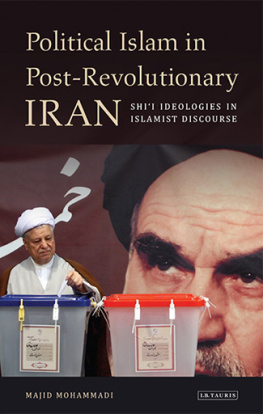
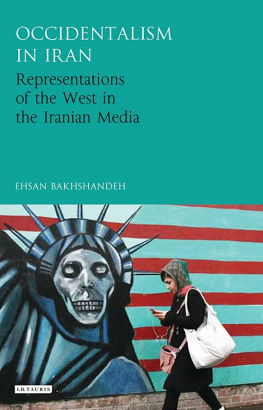
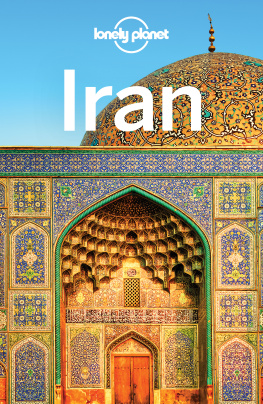
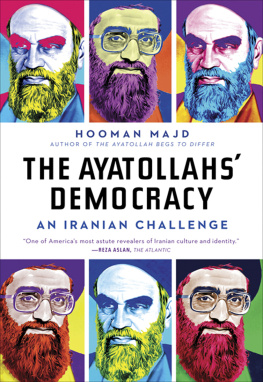
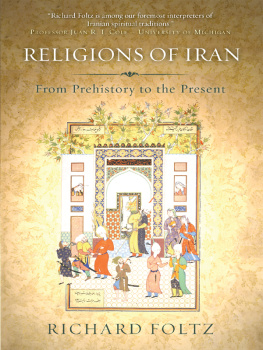
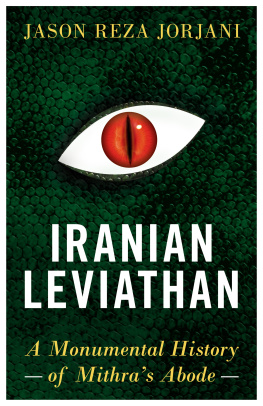
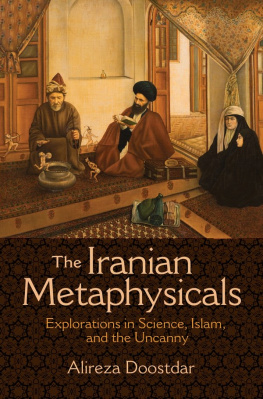

 Printed on acid-free, 100% post-consumer recycled paper with vegetable-based inks.
Printed on acid-free, 100% post-consumer recycled paper with vegetable-based inks.